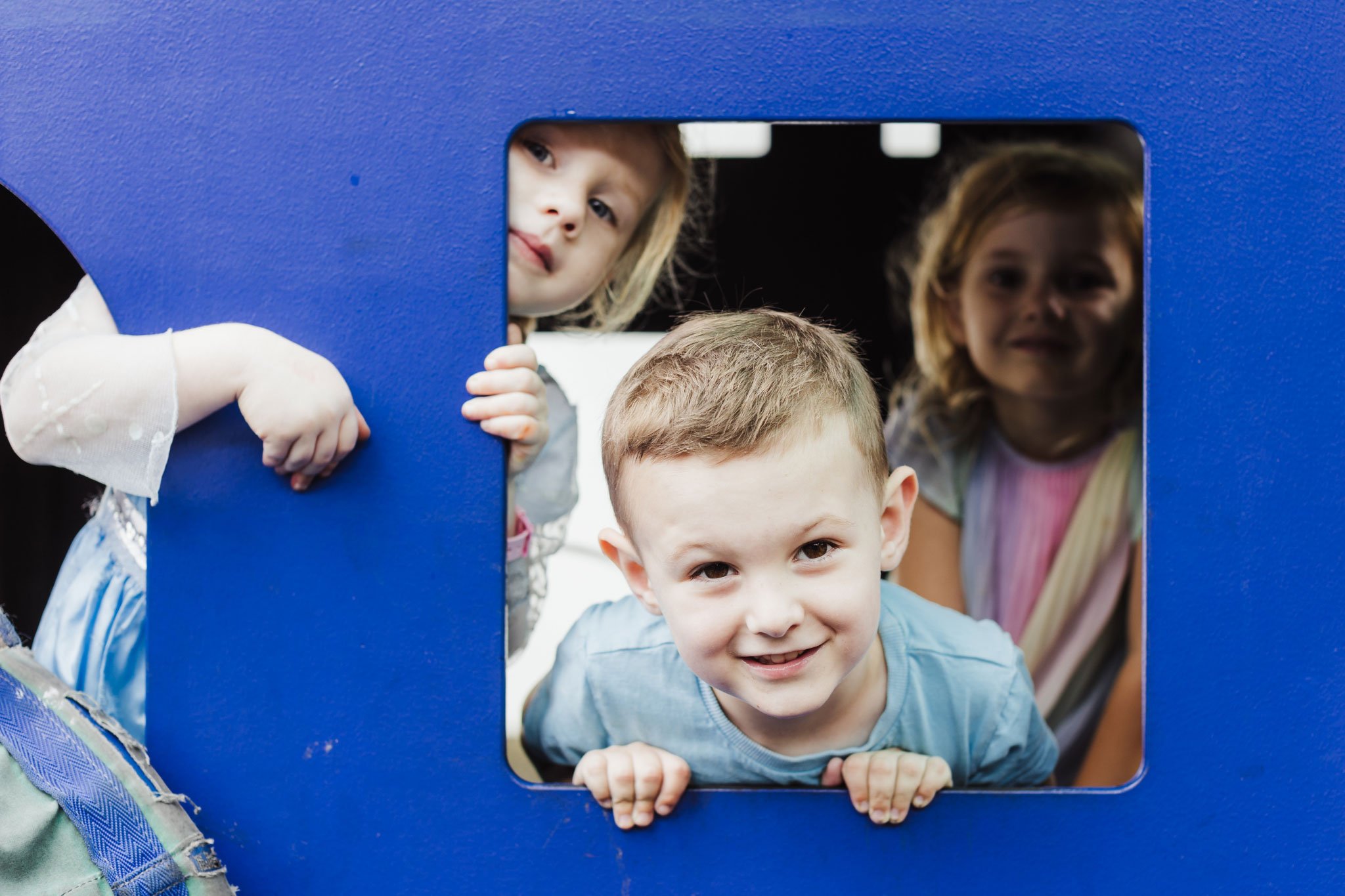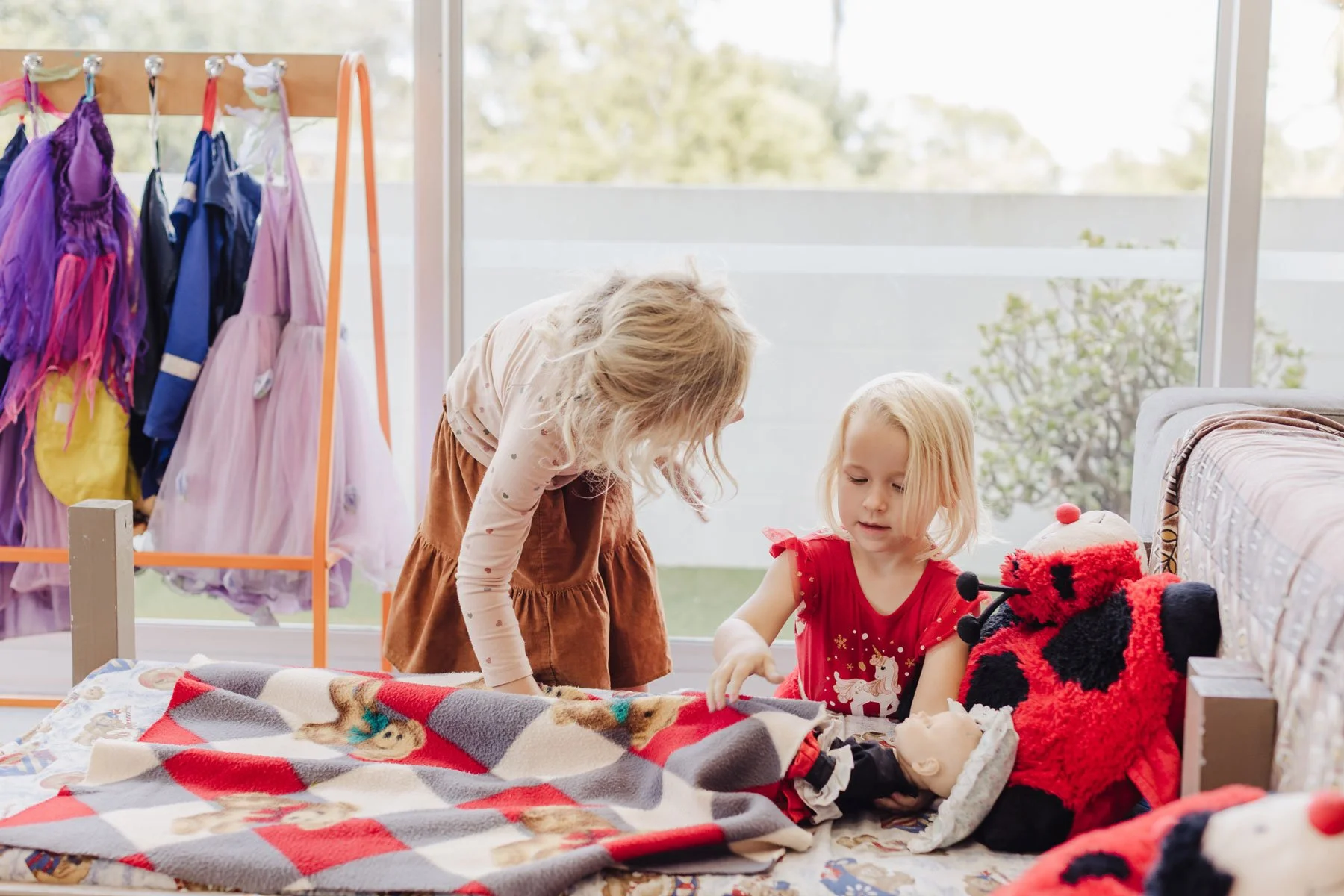Settling Children at Kindergarten
Starting kindergarten is an exciting milestone for both children and parents.
At Uplands Kindergarten in Remuera, we know that every child settles in differently — some dive straight into play, while others need a slower transition. Both are completely normal.
Children learn best when they are feeling safe and secure. At Uplands kindergarten we believe building strong and secure relationships with children and families is very important. When teachers create a space where children have a sense of belonging it gives them the opportunity to learn and grow to their full potential. Being a small community childcare centre, with high teacher to child ratios, we are able to individualise each child’s settling plan to ensure a smooth and positive transition for both child and family.
Whether you’re joining our kindergarten for the first time or returning after a break, here are some helpful tips to support a smooth and positive settling-in experience.
1. Build Familiarity Before the First Day
Children feel safe when things feel familiar. Before your child starts:
Visit the kindy together
Walk around the playground, classrooms, and garden
Show them where their bag will go
Name all their items so teachers can help find things like lunchboxes, clothes & drink bottles
Show them where the toilet is (if toilet trained)
Have conversation with the teachers where teachers get to know your child and families
This helps your child begin to form connections with their new environment and the people in it. Creating connections help to build bonds with the teachers and familiarises children to the new environment. Being familiar with the childcare centre helps children to settle in and feel safe.
2. Keep Goodbyes Short and Predictable
It’s completely normal for children to feel upset during drop-off in the early days.
The best approach is:
A warm hug
A simple, confident goodbye (“I’ll be back after lunchtime.”)
Then hand over to a teacher who will support the transition.
Lingering goodbyes often make it harder for children to settle, the hardest part is the separation. Children have both their own anxiety, and they can sense parent stress. A quick separation often reduces stress and helps children to feel calm more quickly.
3. Expect the “Week 2 or 3 Wobbles”
Many whānau are surprised when their child seems confident for the first few days — sometimes even excited — and then suddenly becomes more unsettled in week two or three.
This is incredibly common.
Once the novelty of a new environment wears off, children start to process the deeper emotional shift of being away from home regularly. They may:
Cry at drop-off
Become clingier
Say they don’t want to come
Show big emotions after kindy
These “wobbles” are a normal part of adjusting. During this time the teachers at Uplands kindergarten teachers will support you and your children, creating personalized routines that best suit your child. The wobbles usually pass quickly with consistent routines and warm reassurance.
4. Trust the Teachers — We’re Here to Help
At Uplands Kindergarten, our kaiako take time to understand each child’s preferences, interests, and comfort strategies. We stay close during drop-offs and gently guide children into play.
Storypark Updates on Day One
To help you feel connected, we always send an update via Storypark on your child’s first day. This gives you a little window into how they are settling and what they’re enjoying.
We Will Always Contact You if Needed
If your child is very distressed and struggling to settle, we will always call you. We want their early days at kindy to feel safe, positive, and nurturing — never overwhelming. Your child’s wellbeing comes first.
As a trusted childcare centre in Remuera for over 50 years , our small group sizes, high teacher to child ratios and relationship-based approach mean we can respond quickly and sensitively to each child’s needs.
5. Create a Consistent Routine
Young children thrive on predictable rhythms. A consistent morning routine helps them feel secure and in control.
You might talk through what their day will look like on the drive to kindy, or use simple language like:
“First we put your bag away, then you can choose an activity, and I’ll be back after work/at mat time.”
These predictable patterns help children trust that you always return.
It is always important to say ‘goodbye’ to your child. Even when they are upset, don’t be tempted to sneak out. Saying goodbye and then returning when you say you will, helps children to build trust, and feel reassured that you will return next time.
7. Expect “After Kindy Tiredness”
It’s completely normal for children to be:
Extra tired
Emotional
Clingy
Sensitive
…in the afternoons during the first few weeks.
Kindy is full of social, sensory and emotional activity, and home is where children feel safe enough to let their feelings out. Calm routines and extra cuddles can make a big difference.
We know you’re just as excited to find out everything that happened at kindy! Questions like “How was your day” or “Did you make any friends?” can be hard questions for children to answer. Try asking questions like “what was the best thing you did today?” This type of direct question is easier for children to answer.
8. Communicate With Us — We Love Hearing From You
Let us know anything that helps your child feel secure:
What comforts them – perhaps a favourite story or song
How their morning has been
Their interests
Any changes at home
The more we know, the more personalised and responsive we can be in supporting your child’s transition.
Every Child Settles in Their Own Time
Children settle at their own pace — there is no “right way” or “right timeline.” Our experienced early childhood teachers want to walk alongside your whānau, to build trusting relationships, and make kindergarten a place where your child feels seen, safe and valued.
If you ever have questions about your child’s settling process, we are always here to support you.




